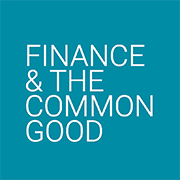29 June 2020, 11:00-12:00
Online webinar, broadcasted live from Pakhuis de Zwijger, Amsterdam
On 29 June 2020 the Finance and the Common Good position paper on the “debt jubilee” was presented to an international audience in an online webinar with prof. Nils Goldschmidt (Universität Siegen), prof. Luigino Bruni (LUMSA, Rome) and Maurice Oostendorp (de Volksbank). The paper was written by a working group led by professor Arjo Klamer and is now available to the public.
From the report: “Debts have been increasing rapidly, even more so after the warning calls of the financial crisis that started in 2008. Since then debt worldwide increased with an additional 80 percent. This debt mountain is looming as a big threat over the world-economy. In addition, it augurs serious troubles for numerous individuals in debt as well as countries that are in debt. (…) Inspired by theological, philosophical and anthropological perspectives, we advocate a re-evaluation of debt and the question of debt.”
We are facing an unprecedented and quickly growing mountain of debts. A rethink is needed of the relationship between debtors and creditors. With debt comes responsibility. But what kind of responsibility, and whose responsibility? Is the way we deal with debt today right or just? Is it economically sensible? Or do debts and the relationships they imply need a revaluation?
In this webinar Professor Arjo Klamer presented a report on the Debt Jubilee, in which it is argued that a fundamental revaluation of the concepts and workings of debt is necessary. He presented his proposals, inspired by both the Biblical concept of the debt jubilee as well as by current practices – like the Swedish Enforcement Authority. The report brings together thoughts from theology, anthropology, history, economics, law and those working with problematic debtors.
Reactions to the report were given by:
– Professor Nils Goldschmidt (Siegen University)
– Professor Luigino Bruni (University of Rome, the Vatican)
– Maurice Oostendorp (CEO Volksbank)
The webinar was broadcasted live from the studio of Pakhuis de Zwijger in Amsterdam.
You can find a summary of the paper in Dutch here and in English here.
And the complete paper (only in Dutch) here.

